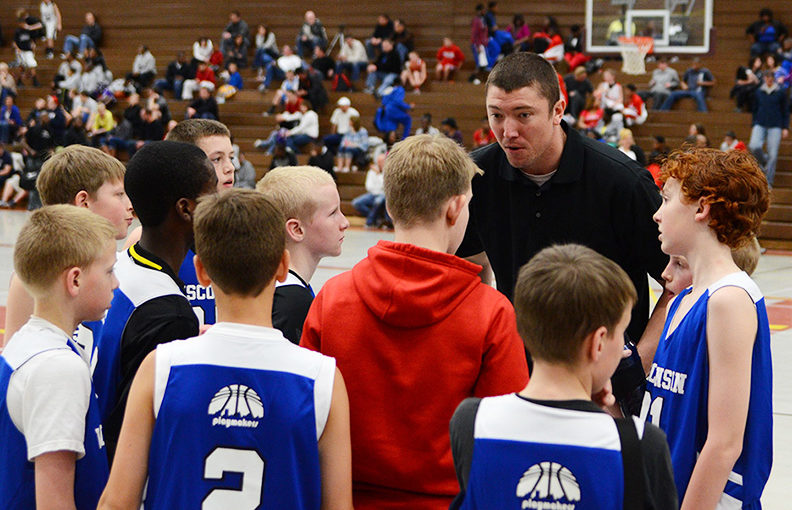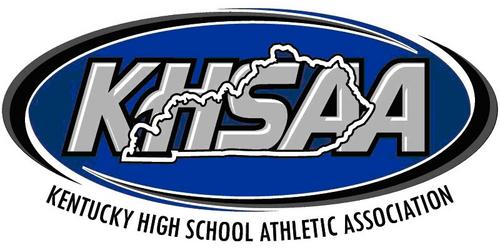Breaking Down Cursing And Coaches
“Danny! If you don’t keep your man off the boards, your *&%#$% is going to be on the *&%#$% bench!”
Coaches have been getting after players since moments after the position was created. What seems to have changed, however, is the frequency of the *&%#$%.
Cursing is increasingly prevalent in society and has long been a part of college and professional sports, but some educators are concerned that foul language is being heard more often from coaches at the high school level, especially with boys.
“We here at Sport in Society find it interesting that somehow and for some reasons, when it comes to (high school) sports, it’s become acceptable,” said Jarrod Chin, director of training and curriculum for the Northeastern University-based organization. “We pose the question, if it’s not acceptable in the classroom but everyone agrees high school and youth sports are about education, then why is it OK for coaches to use profanity?
“Our thing is that it isn’t.”
Coaches contacted for this story agreed with Chin . . . but admitted it doesn’t stop it from happening.
“I think I probably learned from the best,” Warren Central boys basketball coach Greg Graham said with a laugh of playing for legendary coach — and curser — Bob Knight at Indiana. “I do think most coaches, if not all, try to steer away from that and talk in a respectful manner, even when they are trying to get the point across. (But) it’s easy to forget. You have to constantly remind yourself that this is just not the way to talk to kids.
“Do coaches let words slip now and then? Of course they do. Any coach that tells you he doesn’t use profanity is (full of) nonsense.”
Pike track and field coach Curtis Goss was suspended for a meet last spring after what he termed a motivational speech prior to a previous competition that included pushing chairs, challenging his athletes to be unified, and profanity. A police report was filed by a parent, and Goss said the incident was blown out of proportion, but he didn’t deny that he cursed . . . or that he shouldn’t have.
Warren Central is writing a new policy specifically prohibiting coaches from using profanity. Most schools contacted for this story have a written code of conduct that doesn’t specifically mention cursing but effectively prohibits it. Punishment, athletic directors said, is handled on a case-by-case basis.
“It’s going to happen, and we’re going to correct it when it does happen,” North Central athletic director Chuck Jones said. “We’re all human. Something is going to slide out. We’ll speak to that issue when it arises.”
Randy Roberts, a history professor at Purdue University who specializes in mass culture and has written or co-authored 17 books, including ones on Oscar Robertson, the Pittsburgh Steelers and the 1944 Army-Navy football game, pointed to everything from wars to Supreme Court rulings to the Richard Nixon tapes to an easing of movie ratings for the increased acceptance of cursing in society.
“There was profanity in sports, but not like it is today,” he said. “We live in a culture of license. It has developed over the years. Besides some of these court decisions that broaden what is protected as art, protected as literature, what is allowed to be shown, and the same sort of things have taken place in music. Suddenly you can do anything; you can say anything.
“One part of me says, why aren’t parents doing something about it? But what can parents do in a society which has become extraordinarily permissive?”
Graham added: “I don’t think (kids) know that they are even cursing nowadays. I think it’s just part of their language.”
In fact, it’s as much a part of preparing to play a game as tying their shoes.
Pike High School basketball player R.J. Hunter and his teammates listen to explicit music lyrics on their iPods as part of their pregame preparation. Hunter was clear that coach Bill Zych doesn’t curse — and Pike players run punishment laps if they are caught doing it — but Hunter acknowledged it wouldn’t bother him “at all” if profanity was used for motivational purposes.
“I usually use music as a focus,” said Hunter, whose pregame routine includes listening to Drake and J. Cole until Zych begins his pregame instructions. “We usually listen to it right up to the time we can’t listen anymore. It really helps me get in my zone. If I don’t have my music, there are a lot of distractions going on. I like to get focused. Music is a big part of my preparation.”
Many coaches, however, still go to great lengths to prevent profanity from being heard during practices and games.
Ben Davis football coach Mike Kirschner has adopted the euphemism “dip-darts” in the place of four-letter words. (“They know I’m upset and they kind of chuckle, but it gets the same point across versus unloading with a barrage of whatever,” he said.) Northwest boys basketball coach Mosi Barnes reminds his players that people are always listening and that an athlete’s language is a reflection of himself, his parents and the school. The young children of Carmel football coach Kevin Wright often attend practice, and he has a guideline that coaches not use any words they wouldn’t want their mother or kids hearing.
However, Wright, who was an assistant at Western Kentucky University, found far different standards at college practices.
“You go to a college practice and you hear everything under the sun,” Wright said. “That was an adjustment for me and I struggled with it at times, how kids were berated. It wasn’t every coach, but it’s more widely accepted at that level and in the NFL than it is in high school.”
That’s a result of an increased level of competition and, perhaps, a reflection of there being less emphasis on education in college athletics, according to Chin.
Guerin Catholic, Western Boone and Westfield have used Chris Carr, a sport and performance psychology coordinator for St. Vincent Sports Performance, to speak to their coaches about proper motivational methods. According to Carr, there is no need for foul language to motivate. He recommends positive reinforcement and corrective critiquing versus destructive criticism.
“We talk to coaches about having an optimistic style, sharing belief in an athlete’s abilities and encouraging teamwork, communication and positive mental attitude,” Carr said. “They’re asking their athletes to play with composure out on the court or field, but if a coach is losing (his) composure, how much modeling is being done?”
Teenage athletes, however, often need more than positive reinforcement and corrective critiquing to find it within themselves to practice hard enough to continue to improve or get in the proper defensive stance in a game’s final minute. With society’s increasing tolerance for profanity, an inappropriate word seems to be slipping in more often when a coach is trying to push his athletes to improve.
“If (profanity) was directed to me or it was demeaning, I’d have a problem with it,” said Cathedral basketball player Collin Hartman, who acknowledged that players often curse in the heat of the moment. “But if (a coach) is trying to do it in a good way to get somebody going or to get their mind-set right, I don’t have a problem with it.”
3 thoughts on “Breaking Down Cursing And Coaches”
Leave a Reply
You must be logged in to post a comment.








HOW DOES CURSING AT ANYONE GET THEIR MIND RIGHT? YOUR NOT A GOOD COACH WHEN YOU CALL AN ATHELETE OUT THEIR BORN NAME ESPECIALLY IN FRONT OF THEIR PEERS/TEM THE TEACHERS CANT DO IT, SO WHY SHOULD A COACH BE ALLOWED TO DO IT. COACHING IS STILL A FORM OF TEACHING YOUR SUPPOSE TO CREATE A SAFE LEARNING ENVIROMENT IF THE COACH CURSES WHY CANT THE PLAYERS? BUT WHEN THEY DO IT THEY ARE SAID TO HAVE POOR SPORTMANSHIP OR HAVE AN ATTITUDE PROBLEM. WELL WHATS GOOD FOR THE GOOS IS GOOD FOR THE GANDER. COACHES NEED TO SET A BETTER EXAMPLE FOR THEIR STUDENTS BECAUSE THEY ARE STUDENTS IN MIDDLE AND HIGH SCHOOL. A FORM OF BULLYING COMING FROM AN ADULT. IF RULES HAVENT CHANGE THEY NEED TO. WHICH I THINK THEY HAVE SOME COACHES ARE JUST BREAKING THE RULES.
Coaching is a form of teaching, most coaches are educators.
Does it slip from time to time, sure however that doesn’t exclude the coach/teacher from accountability.
If a student cursed at a teacher there are consequences, why not for the so called “adults?”
I have coached soccer, baseball and bowling for the better part of the last 17 years and not even slipped.
I spent 14 years as a licensed basketball official and baseball umpire. In high school sports it is against the rules for the athlete with game consequences. And yes I have given technicals for vulgarity during games, preceded by a warning first, these occurring at big schools like Hamilton Southeastern, Ben Davis and Muncie Central. Athletes get techs for animated attitudes or actions, cussing is an animated action.
Penalize the coaches and the athletes behavior will change. However the problem lies in the sporting atmosphere as a whole, our parents and society have become very permissive with the action. Coaches and schools have become so lax with a gotta win mentality that they forget their true purpose.